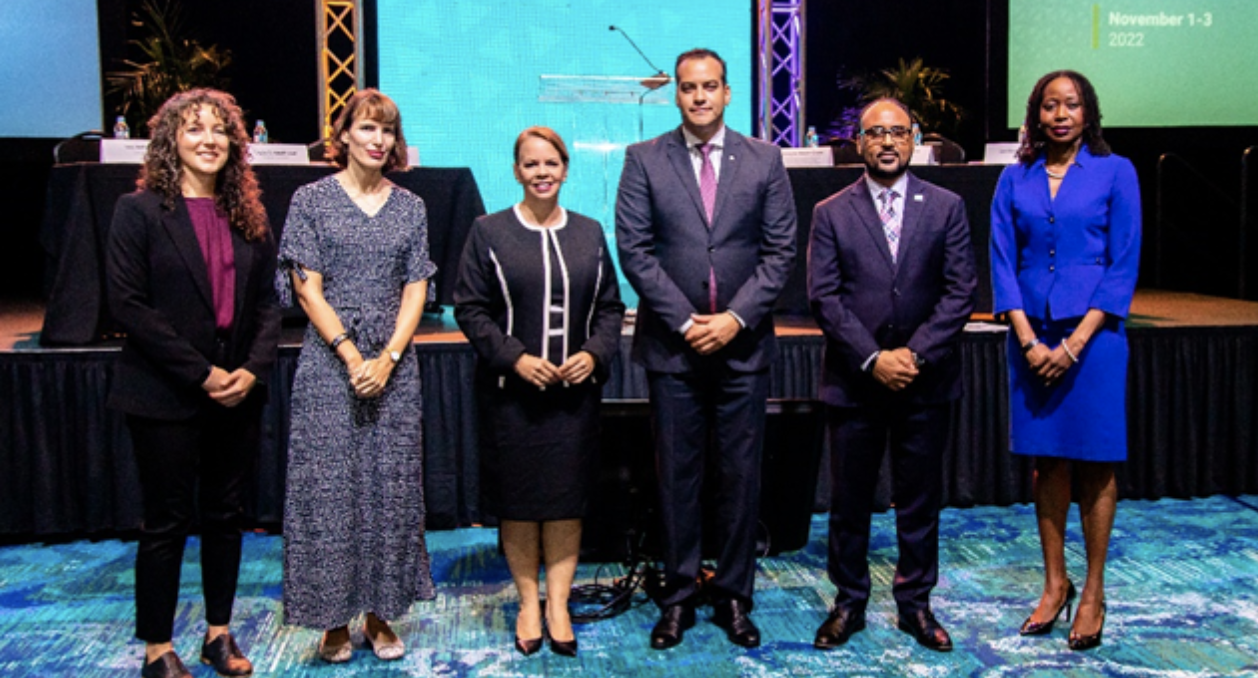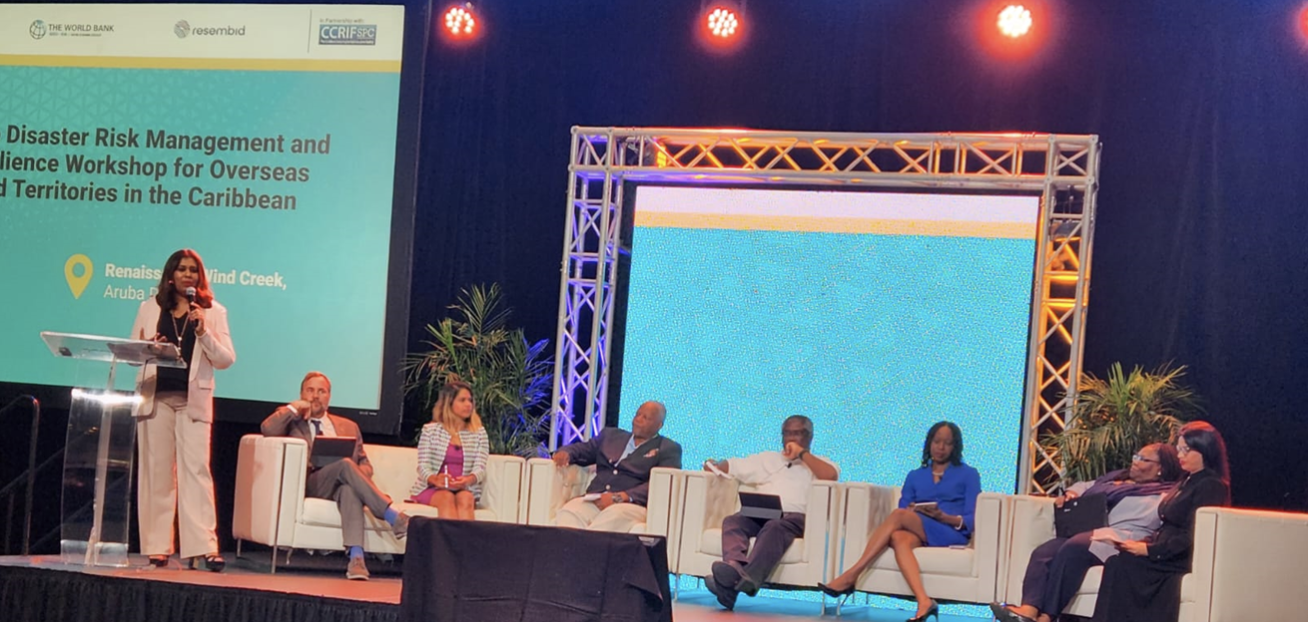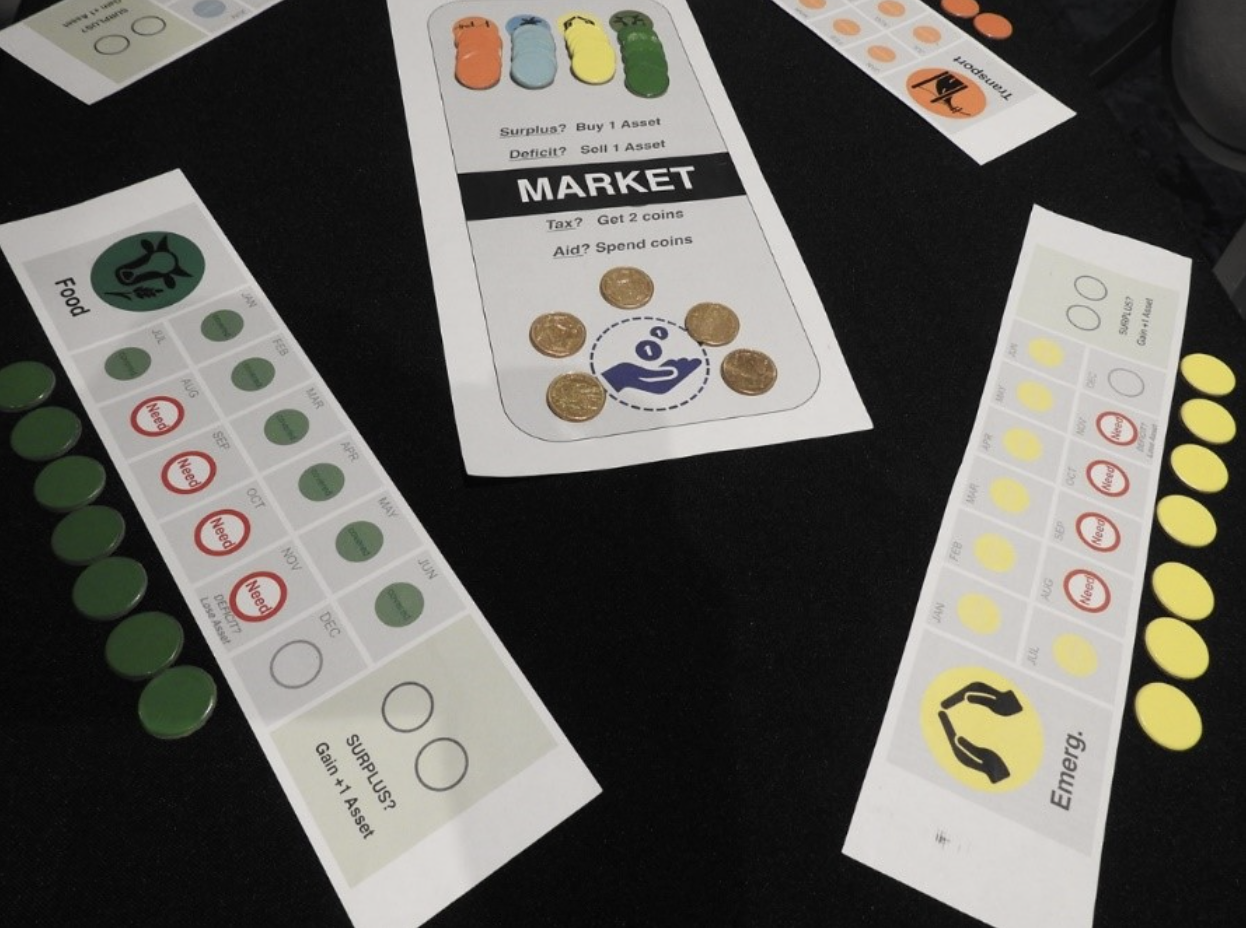Exposed to a variety of natural hazards — including droughts, earthquakes, floods hurricanes, landslides, and volcanic eruptions — the Caribbean is highly vulnerable to disasters. Caribbean overseas countries and territories (OCTs), which tend to have small and undiversified economic bases dependent on tourism, were hit hard by the COVID-19 pandemic that shut down once-reliable sources of revenues. Since many OCTs are categorized as middle-to-high income countries, they are also largely ineligible for official development assistance that could support their disaster risk management efforts.
These OCTs therefore have a limited capacity to channel critical investments to where they are needed the most before, during, and after disasters. At a time when the impacts of disasters are being compounded by climate change, it is imperative to ensure that the region has the resources to combat a variety of shocks and boost its resilience.
From November 1 to 3, 2022, the Caribbean Catastrophe Risk Insurance Facility Segregated Portfolio Company (CCRIF SPC), the World Bank and the Global Facility for Disaster Reduction and Recovery (GFDRR) hosted the “Comprehensive Disaster Risk Management and Financial Resilience Workshop for Overseas Countries and Territories (OCTs) in the Caribbean” workshop in Aruba. Organized with financial support from the European Union in the frame of the Technical Assistance Program for Disaster Risk Financing and Insurance in Caribbean OCTs under the Resilience, Sustainable Energy and Marine Biodiversity Programme (RESEMBID) — which supports sustainable development in the 12 Caribbean OCTs, namely, Anguilla, British Virgin Islands, Cayman Islands, Montserrat, Turks and Caicos Islands, Aruba, Bonaire, Curaçao, Saba, Sint Eustatius, Sint Maarten, and Saint Barthélemy — the workshop was attended by 65 participants, including representatives of international development partners, regional organizations, and government representatives of 11 Caribbean OCTs.

L-R: Ms. Mary Boyer, Disaster Risk Management Specialist, World Bank; Ms. Layla El Khadraoui, Program Manager for St. Barthelemy and Regional Caribbean OCTs, Delegation of the European Union to Guyana; Honourable Evelyna C. Wever-Croes, Prime Minister of Aruba and Minister of General Affairs, Integrity, Energy, Innovation, & Government Organization; Honourable Geoffrey B. Wever, Minister of Economic Affairs, Communications, and Sustainable Development; Mr. Isaac Anthony, Chief Executive Officer, CCRIF SPC; Ms. Elizabeth Riley, Executive Director, Caribbean Disaster Emergency Management Agency.
The workshop aimed to bring together key public sector officials from Caribbean OCTS working in the areas of public finance, climate change and disaster risk management with organizations such as the Caribbean Disaster and Emergency Management Agency (CDEMA), the United Nations Economic Commission for Latin America and the Caribbean (UN ECLAC), the European Union (EU), and other development partners to share lessons from their experiences in implementing comprehensive disaster risk management and financial protection strategies.
More specifically, the workshop was designed to improve the understanding of disaster risk financing tools and current practices in financial protection, enhance knowledge of CCRIF SPC’s work, and build consensus among diverse groups — including governments, regional institutions, and development partners — on the most urgent needs of OCTs in both the short and medium term.
On behalf of the government of Aruba, Prime Minister Evelyna C. Wever-Croes and Minister of Economic Affairs, Communications, and Sustainable Development Geoffrey B. Wever attended the event to welcome everyone. Mr. Isaac Anthony, CCRIF CEO and Ms. Layla El Khadraoui, Programme and Policy Manager at the EU Delegation to Guyana (and with responsibility for Aruba, Bonaire, Curaçao, Saba, St. Barthelemy, St. Eustatius, and St. Maarten), were also present to underscore the importance of proactively planning for disaster resilience.
Ms. Elizabeth Riley, CDEMA Executive Director, who gave the keynote address, set the tone for the two-day event with her remarks: “OCTs — like all other Caribbean countries — exist in a multi-hazard environment. Comprehensive disaster risk management, including financial protection, must be a national development priority.”
Several interactive sessions — including two panel discussions, a half-day training session on disaster risk financing, a field trip that showcased Aruba’s sustainable agriculture practices, and an activity that entailed playing an engaging simulation game (Hurricane Hurry) — filled everyone’s agenda for two days.
The first panel — “Scaling up Partnerships with Regional Organizations” — featured representatives from CDEMA, ECLAC, the Caribbean Development Bank, the World Food Programme, the Caribbean Institute for Meteorology and Hydrology, the University of the West Indies, the Caribbean Community or CARICOM, and CCRIF SPC. The discussion was designed to illustrate in innovative ways how each organization represented in the panel can support OCTs by navigating the comprehensive disaster risk management space.

L-R: Elizabeth Emanuel, CCRIF SPC; Regis Chapman, World Food Programme; Khaliqa Mohammed, CDB; Lloyd Lynch, UWI Seismic Research Centre; Dr. David Farrell, Caribbean Institute for Meteorology and Hydrology; Elizabeth Riley, Caribbean Disaster and Emergency Management Agency; Diane Quarless, United Nations Economic Commission for Latin America and the Caribbean; and Gillian Golah, CCRIF SPC.
The second panel — “Dialogue with Donors and Development Partners” — was facilitated by the World Bank and included panelists from the EU, Expertise France, the World Bank, and the United Kingdom’s Foreign, Commonwealth & Development Office. The discussion focused on how various partners, using their respective strengths, can collectively advance disaster risk financing in the Caribbean.
Participants were also given the opportunity to play Hurricane Hurry, a game that simulates disaster risk financing decision making in crisis situations to convey key disaster risk management concepts and instruments in the Caribbean. Participants were organized in teams to make crucial resource decisions to cover the basic needs of the population while attempting to decide on how to invest in disaster risk financing and pursue climate-smart growth — all while being aware of the risk of losing their development gains at any time amid an extreme weather event.

Hurricane Hurry is a game that simulates disaster risk financing decision making in crisis situations to convey key disaster risk management concepts and instruments in the Caribbean.
To cap off the workshop, a special spoken-word piece titled “Let Us Listen,” produced specifically for the workshop titled by Barbadian poet Cyndi Celeste, was presented to the participants, serving as a clarion call for change in the face of a changing climate that is compounding the effects of existing natural hazards.

Barbadian poet Cyndi Celeste reciting her special spoken-word piece titled “Let Us Listen,” which was produced specifically for the workshop. Watch it here.
Weeks after the workshop, at the Understand Risk 2022 conference held from November 28 to December 2, 2022 in Florianópolis, Brazil, CDEMA executive director Ms. Elizabeth Riley underlined the importance of disaster risk reduction in the Caribbean and highlighted three priorities for the region: intentional investments at a transformational scale, a better understanding of social vulnerability, and better communication of risk information. Indeed, the World Bank and GFDRR will continue to partner with the Caribbean and with the European Union as well as other development partners to provide technical assistance and implementation support that will ensure that the region has the public financial management systems in place to address multiple disaster risks.
